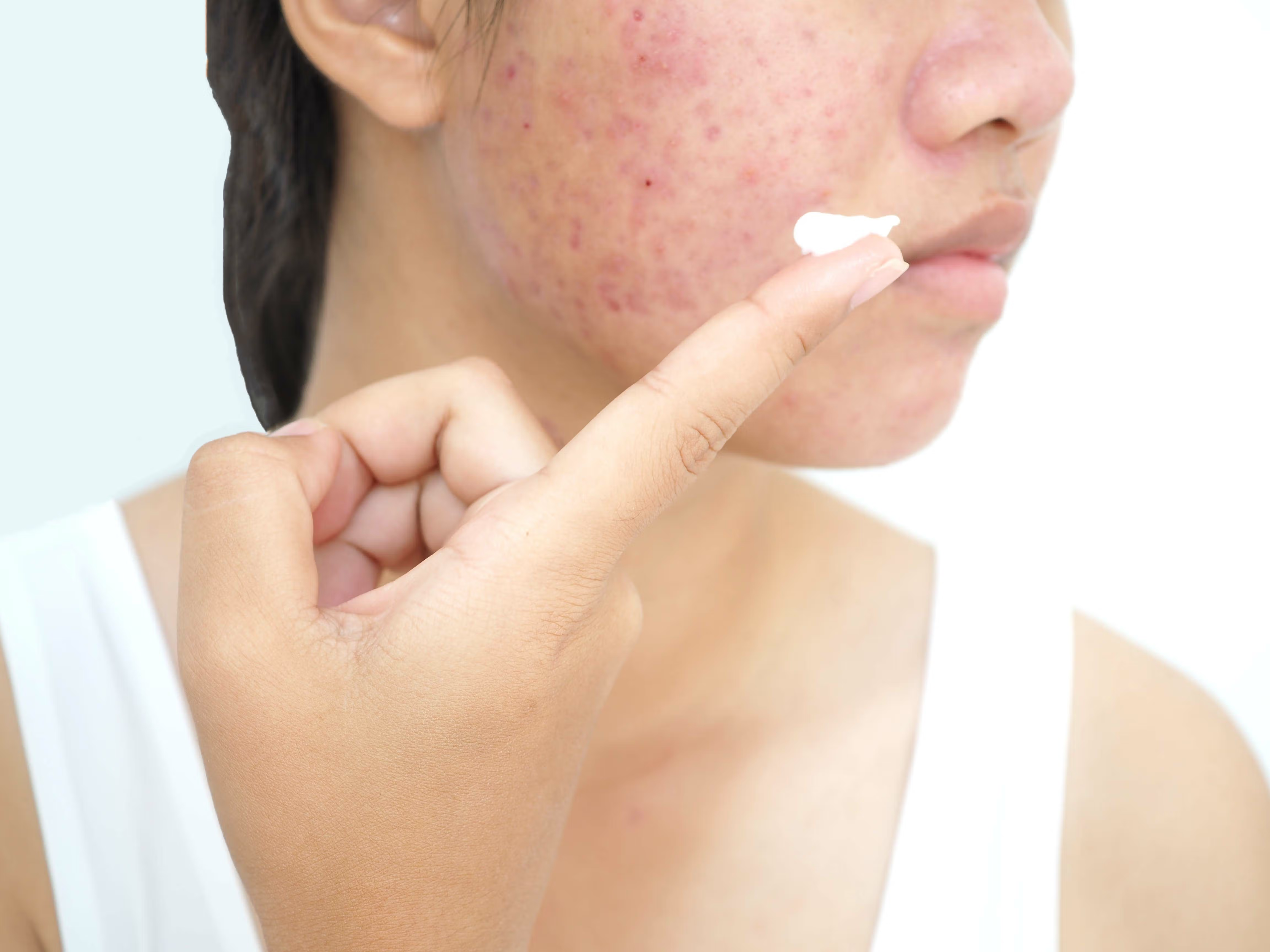- Case-Based Roundtable
- General Dermatology
- Eczema
- Chronic Hand Eczema
- Alopecia
- Aesthetics
- Vitiligo
- COVID-19
- Actinic Keratosis
- Precision Medicine and Biologics
- Rare Disease
- Wound Care
- Rosacea
- Psoriasis
- Psoriatic Arthritis
- Atopic Dermatitis
- Melasma
- NP and PA
- Skin Cancer
- Hidradenitis Suppurativa
- Drug Watch
- Pigmentary Disorders
- Acne
- Pediatric Dermatology
- Practice Management
- Prurigo Nodularis
- Buy-and-Bill
Article
Post-Acne Vulgaris Scarring Leads to Negative Body Image and Self-Esteem
Author(s):
In a recent study, authors argue that psychosocial impacts should be at the forefront of the discussion in acne scarring, noting that psychopharmacological management may be necessary in instances of severe psychiatric comorbidities.
Although significant progress has been made in treating post–acne vulgaris scarring, a new article argues that not enough attention has been paid to the psychosocial impacts of such scarring.
Budimir Jevtic/AdobeStock

Writing in Clinical, Cosmetic and Investigational Dermatology, the study authors discussed the most recent research into the psychosocial impacts of acne scarring. They said acne scars, which result from dysregulated collagen production during the healing process for acne lesions, have no universal solution.
“Due to their tendency to appear in highly visible areas of the body, including the facial and truncal regions, acne scars play a significant role in triggering and exacerbating negative body image and self-esteem,” the authors said.
They conducted a review of articles related to acne and acne scarring and their effects on quality of life, finding a limited amount of high-quality evidence, which they said made it difficult to develop effective clinical recommendations. Still, they said several themes emerged from the data.
They noted that acne scarring typically occurs during the peak onset of acne vulgaris, and thus generally between the ages of 14 and 19. These are critical ages in terms of mental health, they noted.
“During this time, the developing brain undergoes significant structural and functional changes, which can make it more susceptible to the development of mental problems,” they wrote.
Because acquired disfigurements, like scars, can be more easily affected by coping mechanisms early after a person’s appearance changes, it is important to intervene early in active acne cases, both to prevent scarring and to mitigate psychosocial stressors associated with it, the investigators wrote.
One way to address active acne is to use prescription drugs. However, the authors said some acne therapies may have neuromodulatory effects. For instance, isotretinoin, which is indicated for severe acne that is resistant to topical therapies, has been shown to impair serotonin signaling, which the authors said may potentially lead to symptoms of depression.
“In addition to depression, oral isotretinoin treatment has been associated with a higher risk for suicide, psychosis, and bipolar disorder,” they said, adding that one study found the mental adverse effects did not improve even following completion of the therapy.
Ironically, although isotretinoin can cure acne, it also slows healing and can therefore increase the risk of scarring.
“It is unfortunate that the cure for acne may come at the risk of increased scarring, which contributes to sentiments of hopelessness and medical disillusionment,” the authors wrote.
They also noted that acne and acne scarring can lead to social stigmatization, and the perception of social stigma.
The authors said despite the significant evidence of psychosocial consequences of acne scarring, several barriers to successful management of acne scarring exist. One is the lack of high-quality research into managing the psychosocial effects. Another barrier is a lack of patient literacy regarding acne. One study found that among patients with resolved acne, those who visited a dermatologist sooner were less likely to have scars.
“Patients with postacne scarring frequently report sentiments of regret and self-blame, adding to existing psychological stress caused by physical symptoms alone,” the study authors wrote.
Some patients also run into financial barriers, they noted, as certain prescribed treatments for acne scarring are deemed “cosmetic” and thus not covered or covered less generously.
The authors said it is important for clinicians to be vigilant, not only about acute acne itself, but also about the psychosocial impacts that it or later scarring can bring.
“Early implementation of synchronous psychotherapeutic interventions, such as cognitive behavioral therapy and support groups, help promote constructive coping mechanisms, manage realistic expectations for improvement, and mitigate social handicaps,” they said.
In severe cases of psychiatric comorbidities, they said psychopharmacological management may be warranted.
Ultimately, clinicians need to see acne scarring as more than just an adverse effect of acne.
“The literature indicates that acne scarring is a distinct condition from acne vulgaris and therefore requires a comprehensive clinical approach unique from those available for active acne,” they concluded.
Reference
- Zhou C, Vempati A, Tam C, et al. Beyond the surface: a deeper look at the psychosocial impacts of acne scarring. Clin Cosmet Investig Dermatol. 2023;16:731-738. doi:10.2147/CCID.S406235
[This article was originally published by our sister publication, AJMC.]





